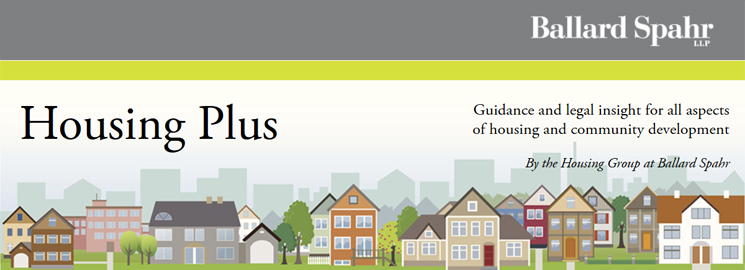
Yesterday, HUD issued an advanced notice of proposed rulemaking requesting public comments to its 2013 Final Rule which implemented the Fair Housing Act’s disparate impact standard. HUD indicates this rulemaking is in light of the Supreme Court’s 2015 decision in Texas Department of Housing and Community Affairs v. Inclusive Communities Project, Inc., which held that disparate impact claims are cognizable under the Fair Housing Act. HUD is reexamining its rule to determine if any changes may be necessary.
HUD is specifically requesting public comments to the following six questions:
-
Does the Disparate Impact Rule’s burden of proof standard for each of the three steps of its burden-shifting framework clearly assign burdens of production and burdens of persuasion, and are such burdens appropriately assigned?
-
Are the second and third steps of the Disparate Impact Rule’s burden-shifting framework sufficient to ensure that only challenged practices that are artificial, arbitrary, and unnecessary barriers result in disparate impact liability?
-
Does the Disparate Impacts Rule’s definition of “discriminatory effect” in 24 CFR 100.500(a) in conjunction with the burden of proof for stating a prima facie case in 24 CFR 100.500(c) strike the proper balance in encouraging legal action for legitimate disparate impact cases while avoiding unmeritorious claims?
-
Should the Disparate Impact Rule be amended to clarify the causality standard for stating a prima facie case under Inclusive Communities and other Supreme Court rulings?
-
Should the Disparate Impact Rule provide defenses or safe harbors to claims of disparate impact liability (such as, for example, when another federal statute substantially limits a defendant’s discretion or another federal statute requires adherence to state statutes)?
-
Are there revisions to the Disparate Impact Rule that could add to the clarity, reduce uncertainty, decrease regulatory burden, or otherwise assist the regulated entities and other members of the public in determining what is lawful?
The 60 day comment period ends on August 20, 2018. Interested persons can submit comments to HUD electronically through http://www.regulations.gov or by mail.
Ballard has been closely monitoring potential changes to the Rule and will continue to do so.